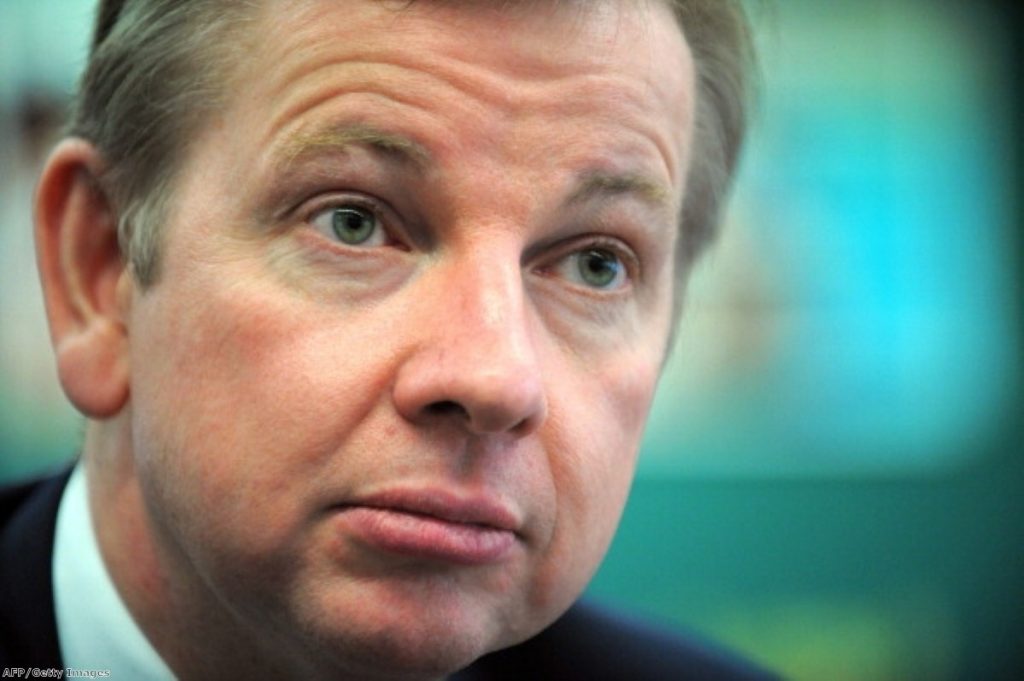The Week in Review: Gove hits the limit of the free school project
One failing free school does not mean all free schools are failing. But it is pertinent that a failing free school seems to be failing for precisely the reasons critics predicted they would.
The Al-Madinah Islamic school in Derby had a prospectus which assured prospective parents "sensitive, inaccurate and potentially blasphemous material will be censored or removed completely". It added: "If and when teachers are required by the curriculum to convey teachings that are totally against Islam (Darwinism, for example), the director of Islamic Studies will brief the relevant teachers and advise accordingly."
A Christian teacher said she was forced to wear the hijab and an ankle-length skirt when taking up her job. Reports emerged of girls being forced to sit in the back of the class, although an Ofsted report later said they merely sat on opposite ends of the class to boys. Lunchtimes were staggered so boys and girls did not sit together.
Teachers had not appeared to have had criminal record checks. Ofsted found unqualified teachers were being given vital roles. "Staff were appointed to key roles for which they do not have qualifications and experience," the report said. "For example, most of the primary school teachers have not taught before and the head of the primary school is experienced in teaching secondary-aged pupils only."


One maths class saw pupils just cut out shapes. They "learned little that was mathematical", inspectors found. The school was apparently being run by people "representatives of the community with limited knowledge and experience". Management and governance were "inadequate".
This corresponds to much of the criticism of the free school programme since its inception as an 'heir to Blair' project in Michael Gove's seemingly impenetrable Department of Education fiefdom 2010.
Secular critics warned religious groups would seize on the freedoms free schools offered to drop Darwinism and offer students a religious education using state funding. They warned these institutions could start imposing cultural restrictions on girls in their care.
They said that overly loose rules around the qualifications of teachers would see communities put in place badly trained staff. And, as Richy Thompson of the British Humanist Association wrote for us this week, they warned that driving all national school applications through the Department of Education, rather than having local authorities deal with the ones in their local area, would make the scrutiny process much less reliable.
By the time Gove's underling, education minister David Laws, was forced to the Commons on Thursday for an urgent question from new shadow education secretary Tristram Hunt, the stage seemed set for the government's programme to take a long-overdue battering.
It didn't happen. Laws is a capable Commons performers and Hunt over-egged his performance a little. Law's was able to use his weekend protestations of support for free schools against him, even though Hunt had been clear about his caveats – including teacher qualifications. But something important had been revealed by the exchange.
The hatred Gove recieves from the left is almost as out of proportion to his crimes as the praise he receives from the right is to his qualities.
Admittedly, he can sometimes sound as if he is harking back to the Victorian age, especially in his excessive criticism of coursework. And he does seem to go out of his way to start fights with teachers unions, in what is evidently a game of sport for him. He has also allowed a highly aggressive campaign to be run by his staff against opponents, while using his gentlemanly charms for cover.
But his demands for rigorous educational standards and chronological history teaching are not particularly controversial. And there is nothing implicitly wrong with the idea of taking schools out of local control, as long as they can be shown to satisfy key educational standards. The trouble is that there is a conflict between encouraging people to set up free schools and the restrictions one might want to place on what they with them. If you are set on boosting the number of applications, you might be prepared to cut corners on restrictions.
There is a suspicion standards took a back seat to his increasingly personal political battles, as the desire to see a flood of new schools perhaps superseded the rate at which they could be satisfactorily evaluated.
But no matter how far Gove's free school project gets, Thursday's urgent question in the Commons highlighted a very important feature of all efforts to outsource public services – whether it be education or medical services: When something goes wrong, people still expect the secretary of state to be accountable.
New Labour and the Tories both enjoyed hiving off state function to third party providers, be they the private sector, charities or the murky, catch-all 'local community'. This may or may not provide better services but one thing is certain: it does not absolve Whitehall of responsibility. Without a firm framework against which standards are measured these projects will not be tolerated by the public.
The free schools project is not failing. But the idea that it is truly free certainly is.

